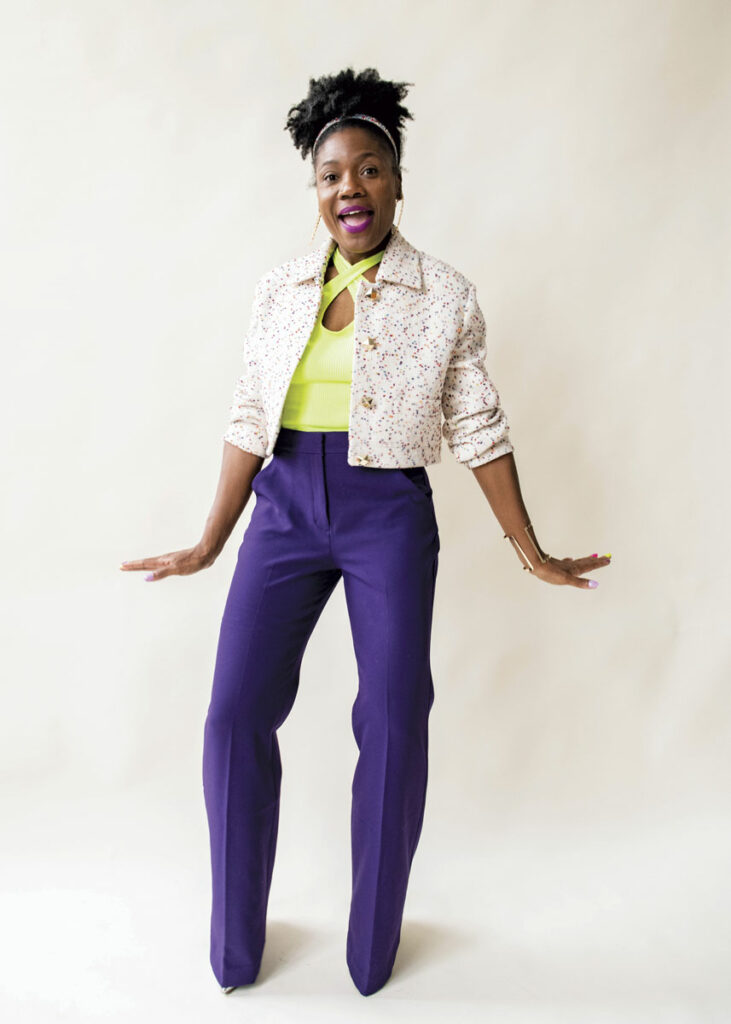DIRECTOR, CANNABIS NYC
Lives In: Crown Heights
Working Toward: Equity in the Cannabis Industry
In September 2021, New York legalized recreational marijuana. With legalization came the promise of both tax revenue and justice; people in communities that had been unfairly targeted for prosecution under Rockefeller Drug Laws were intended to be among the first to receive recreational dispensary licenses.
Getting the legal recreational weed industry off the ground, however, hasn’t been easy. That might be confusing if you’ve seen the glut of smoke shops on almost any given New York street. According to the New York Times, though, only 23 cannabis dispensaries in New York State are licensed.
A series of legal challenges have slowed the momentum of the licensing rollout, but at least one government official is helping entrepreneurs who want to legally sell weed. In late 2022, Dasheeda Dawson was named the inaugural director of Cannabis NYC, an initiative from the NYC Department of Small Business Services meant to “support the development of a thriving and equitable cannabis industry with first-of-its-kind support for aspiring cannabis entrepreneurs.” In practice, that means helping people apply for licenses and guiding them through the maze of red tape that blocks entry to the cannabis market.
“I’m looking to demonstrate that government can be held accountable for policies that have only created detrimental outcomes for communities, and that the government can be very intentional about ensuring that there is repair and restoration,” Dawson said.
Growing up in East New York, Dawson witnessed those detrimental outcomes in her own community. “I survived the height of cannabis prohibition and witnessed targeted enforcement derail the lives of my friends and family. I was stopped, searched, and treated like a criminal before I ever touched the plant, which shaped my initial perceptions,” Dawson said when she accepted her current job. It was a moment that she feels brought her life full circle.
On the way to that point, though, Dawson studied molecular biology at Princeton, then got her MBA from Rutgers business school and worked as an executive at Fortune 500 companies that include Target and Victoria’s Secret. “I really saw myself as eventually becoming a Fortune 500 CEO, and that was the track I was on,” Dawson said.

But her mother’s unexpected passing provoked a moment of reflection. “That level of abruptness,” she said, reminded her that she was mortal. “I have a finite amount of time here. And it really made me evaluate what I was doing at my job. I went back to work after a couple weeks off to do the funeral and other arrangements, and I quit the same day I came back. I felt like I did love my job, but it didn’t fulfill me in the way that I felt like my work should.”
Dawson had seen her mother use cannabis to cope with health issues, and Dawson soon began to use cannabis herself to treat the early onset of an autoimmune disease. But Dawson “wanted to be a patient with dignity,” she said, so she moved to the West Coast where she would be able to legally access the medical marijuana market without feeling like she was hiding.
Dawson styled herself The WeedHead™ and reoriented her career toward working in the cannabis industry and helping others figure out how they could break into the field. Eventually, Portland, Oregon, made Dawson its cannabis program manager—in that position, she oversaw the development of Portland’s legal cannabis businesses, including its regulatory licensing, compliance, education, and equity initiatives.
These days, Dawson wants weed to be mainstream in the conversation about wellness. She believes that regardless of whether people are using it to help cope with an illness or using it socially, marijuana has medicinal value. The work of her office “more than anything else, is to dispel this myth that it can’t be all of those things,” she said. “It’s really the consumer who dictates what they’re doing.”
The biggest obstacle to greater acceptance of weed? Education, Dawson said.
“If you have that history and you were drilled around the miseducation of cannabis, it’s very difficult for people to have their mind-set shifted.” But thanks to Dawson’s work, those mind-sets are, in fact, beginning to shift.



